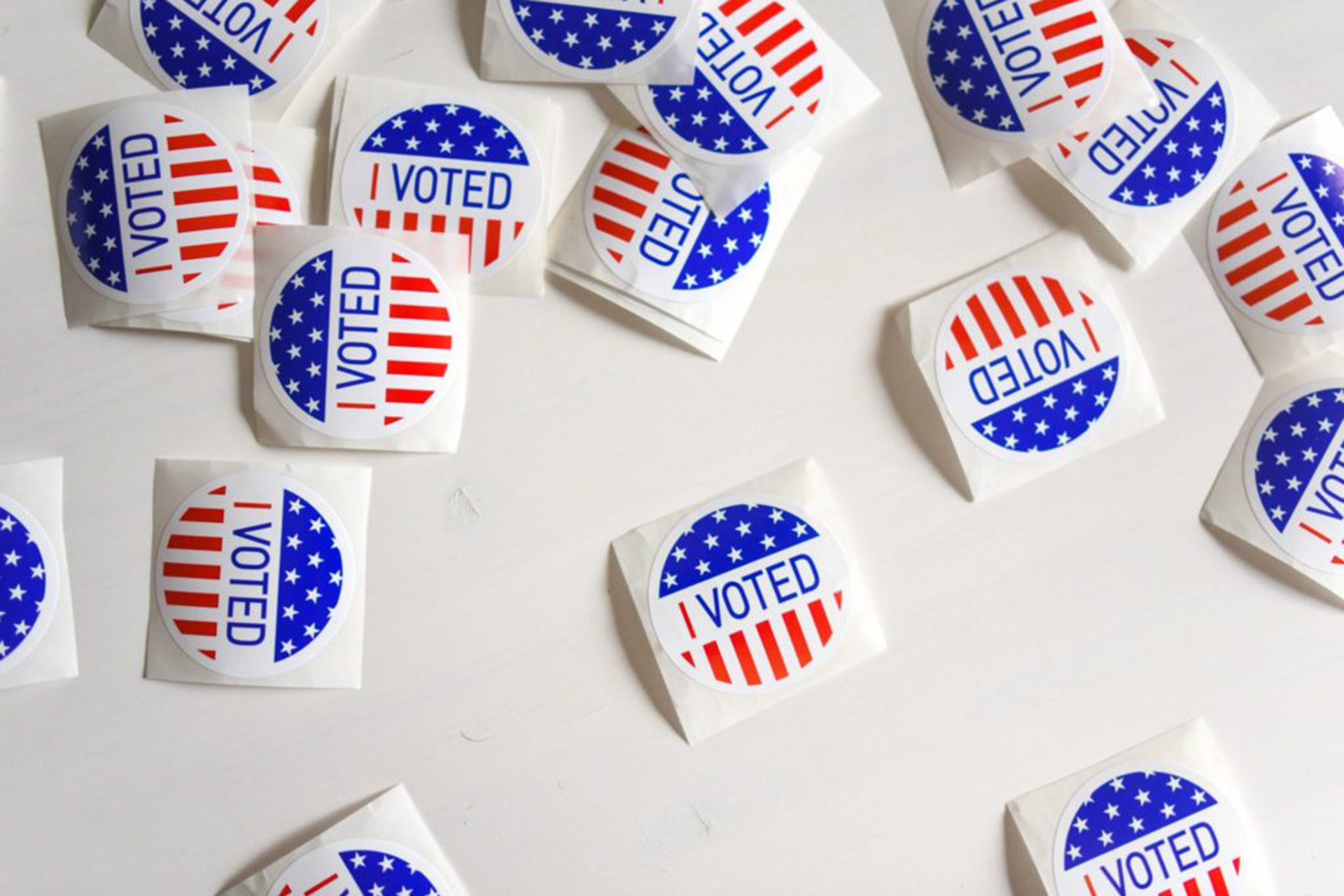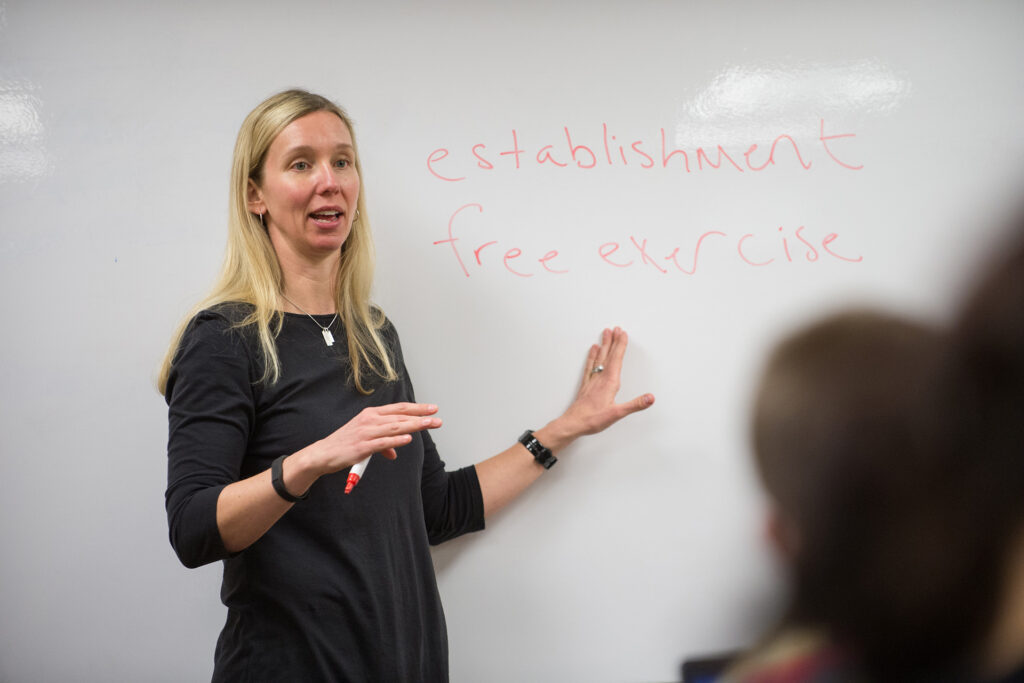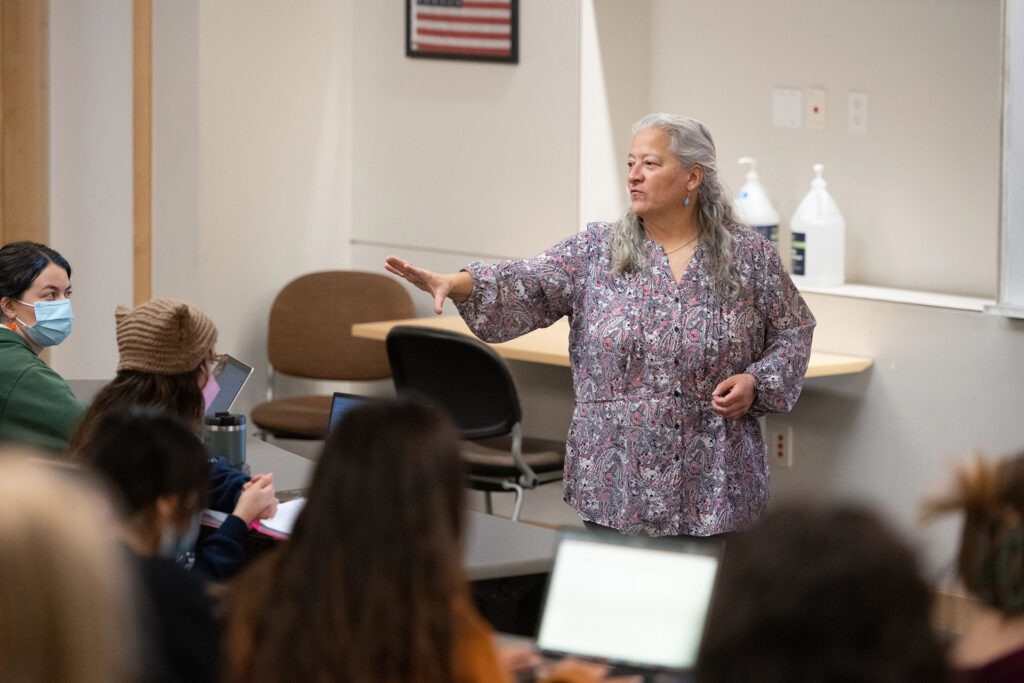
What is democracy?
CSU course enables students to work together to build their own
story by Allison Sylte
published Oct. 30, 2023
Here’s a question: What is a democracy?
Sure, a political science 101 textbook might offer one definition, but students in a special Colorado State University class have been given a space to create their own, culminating in a Constitutional Convention at the end of the semester.
“There’s a myth that the U.S. is the only way to structure or ‘do’ democracy – it’s not, and we want to use this to shatter the norms about what this concept means,” said Courtenay Daum, a CSU professor of political science.
She is co-teaching the course with Doreen Martinez, an associate professor in the Department of Ethnic Studies who is an expert in Indigenous knowledge systems. The two of them launched their Liberal Arts course to coincide with CSU’s Thematic Year of Democracy, and are now teaching a section that includes students from a variety of different disciplines.
“It’s been exciting but hard – we’re trying to engage questions and issues that are very critical,” Martinez said. “We’re coming up with foundations and exploring concepts, yet if there were easy answers to today’s pressing challenges, it already would’ve been done.”
Daum and Martinez sat down with SOURCE for a Q&A about the first few weeks of their course, what they’ve learned, and how students are engaging with Western and Indigenous practices of rights, liberties and responsibilities.
What’s been unique so far about your experience in the class?
Martinez: I think it’s exciting in the sense that we’re able to team teach and bring in expertise from the two very different disciplines we’re in.
Daum: I think combining our two different backgrounds – with Doreen’s expertise being in Indigenous knowledge and mine in law and political science – doesn’t just get our students to think about democracy differently, but also ourselves, which has been really exciting to see and model to the students.


Courtenay Daum (left), professor of political science, and Doreen Martinez, associate professor in the Department of Ethnic Studies. Photos by CSU photography
As of this interview (Oct. 20), the U.S. House of Representatives was still without a speaker. What’s it like teaching this course about democracy amidst the backdrop of political turmoil in the U.S. and beyond?
Daum: I’ve been teaching American government and politics for 20 years, and one thing I know is that democracy is hard, and it’s been clear as we’ve watched our students work to come to a consensus about what certain topics mean and what they’re trying to achieve that they are realizing how hard this is too.
It really reminds you of how difficult it is to think about and engage these big issues, and in some ways, compared to current political environments, I’ve been so impressed by how these students have managed to work through these complex issues with civility and grace.
It’s heartening for me, and it gives me a lot of faith and optimism to listen to these students who have different political and ideological backgrounds come to the understanding that they have common values, and they can find solutions.
Martinez: There are plenty of examples of democracy under pressure around the world, and sometimes, we see this chaos and we turn away from it.
But through this class and for the interests of our students, we’re not going to turn away. Instead, we’re going to find ways to engage, and have our students work together to answer some hard questions about what a democracy should mean and how it will work.
At this stage, we’re unsure what’s going to happen or what outcome to expect, but watching the process itself is really, really important. We want to see this next generation discuss what their future – our future – will look like, and how our governing bodies can get us there.
So far, what have the students created with their potential democracy that has surprised you the most?
Daum: What’s really powerful is that one of the class’s commitments is to figure out how to bring non-human voices and perspectives into their democracy. That means how do you represent the interests of the animals, the land, the natural resources that also share the same borders.
They want their democracy to not just involve people, but also the ecosystem, and that is 100% something they picked up from our discussions of Indigenous principles, community organizations and governing.
Things like the rights of nature are not something we talk about in our American democracy today, and for me, I think it’s evidence of how even halfway through the semester, they’re reimagining what democracy means here in the U.S.
Martinez: In Indigenous principles and ideas of democracy, you see a responsibility to that interconnectedness with nature, not just for today, but for our future.
I think this generation of students is very aware of the damage that humans have done to the environment, and they’re thinking about ways we can and must operate differently in the future.
Because of our current conditions, students are clearly aware of inequality issues and environmental issues, and that’s likely because they’re getting a lot of information in new ways. such as social media. This course is providing concrete foundations, and principles, which include Indigenous Democratic traditions that have existed for hundreds or more years. In addition, we have engaged in meaningful analysis of U.S. democratic norms, ultimately offering the students templates, and/or possibilities, for future governing traditions that they define, engage and explore the society they seek to create.
A more perfect union. Sometimes it seems within reach. Other times, it feels like it’s impossible. At Colorado State University, faculty, students and staff are working together to strengthen our democracy. As President Amy Parsons noted in her inaugural Fall Address, CSU is uniquely positioned to be a leader at this unique moment in readying citizens to participate in all facets of civil society. This special report from SOURCE explores the work happening at CSU as well as answering those tough questions in order to blaze a path toward a healthy democracy.